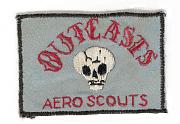totally agree Flournoy is an excellent choice for USD(P) but I think her real experience was perhaps better suited for the position of DSD (plus she has no 'big defense contractor stink' on her. IMHO anyone considered for a senior position in defense should recuse themselves if they have worked in any capacity for any of the top 10 defense contractor in the last five years, is it just me, or is it smart to let the wolves guard the henhouse?). At CSIS she cowrote BGN I & II and as DSD could actually have seen them put into effect quicker, although her position in USD(P) is also well placed for that, assuming POTUS, the SD, and DSD agree. While her ASD experience certainly makes her familiar with the inner workings of the building it is her subsequent work with CSIS and CNAS that IMO really saw her rise to the top.
I did note the the USDs should remain PASs since they are PSAs to the SD/DSD. It's the appointments beneath them that should not be political. Two reasons, one is that while they work for the SD they don't always feel that they answer to him. Second, RAND and CSIS studies have shown the average turnover in politicals is about 2.5 years. Not an effective way to provide leaderhip and governance for a vast enterprise that functions like a small country (as Sec Gates has noted).
Some of the career folks can additionally be a part of the problem since they are usually aware of the 2.5 year average and will take the stance that they can slow roll many issues until the political appointee leaves, then just let it die.
I have little faith my congressman would change things, but Jim Webb might.
Plus I might be in a better spot than either of them.















Bookmarks